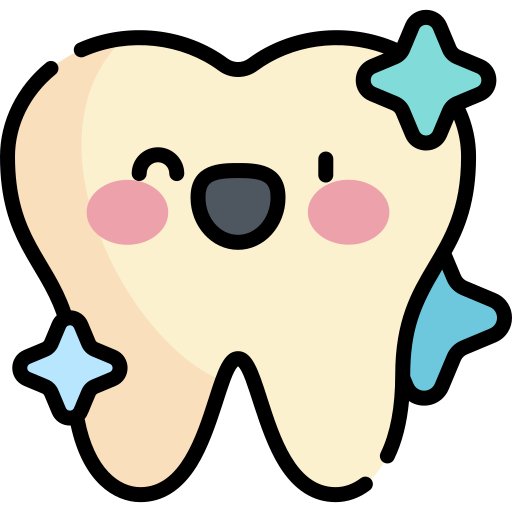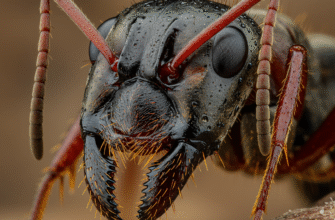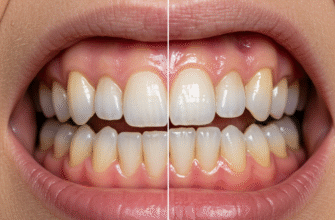Ever found yourself wincing in sympathy as a friend recounts their wisdom tooth saga? The swollen cheeks, the ice cream diet, the days spent recovering – it’s practically a rite of passage for many young adults. But here’s a fascinating twist: not everyone joins that club. Some people, through a quirk of genetics and evolution, are born without some, or even all, of their wisdom teeth. Imagine sidestepping that whole ordeal entirely!
So, What Exactly Are These Famed Wisdom Teeth?
Before we dive into the mystery of the missing molars, let’s get acquainted with what wisdom teeth actually are. Known more formally as third molars, these are the last set of teeth to develop and erupt in the human mouth. They typically make their grand, and often disruptive, entrance between the ages of 17 and 25, a period historically associated with the onset of maturity or “wisdom,” hence their common name.
Our ancient ancestors, with their coarser, tougher diets, likely found these extra grinders incredibly useful. Think about chewing raw plants, roots, and tough meats without the aid of modern cooking techniques or cutlery. Those extra molars provided more surface area for grinding down food, making it easier to digest. Their jaws were also generally larger, providing ample space for these latecomers to settle in comfortably.
The Standard Set: Four is the Magic Number (Usually)
Most people are genetically programmed to develop four wisdom teeth: one in each posterior corner of the mouth – upper left, upper right, lower left, and lower right. For generations, this has been the expected dental blueprint. Dentists anticipate their arrival, and many individuals brace themselves for the potential complications that can come with them, such as impaction, crowding, or infection. This expectation is so ingrained that finding out you’re missing one or more can come as quite a surprise.
Dental professionals confirm the presence or absence of wisdom teeth through panoramic X-rays. These images provide a clear view of the jaw, revealing developing tooth buds or their complete absence. This is often done during routine dental check-ups in the teenage years.
The Curious Case of the Missing Molars: Agenesis Explained
The phenomenon of being born without certain teeth is called tooth agenesis. When it specifically refers to wisdom teeth, it means the tooth buds for these third molars simply never formed. It’s not that they are hiding deep within the jawbone, waiting for the “right moment” to erupt; they genuinely don’t exist from the get-go. This can affect one, two, three, or even all four wisdom teeth.
Why does this happen? The primary drivers are believed to be a combination of genetics and evolutionary trends.
An Evolutionary Shift: Our Changing Jaws and Diets
Human evolution tells a fascinating story here. Over millennia, our diets have become significantly softer and more processed. We cook our food, cut it into manageable pieces, and generally don’t require the same heavy-duty chewing power our ancestors did. As a result, human jaws have gradually become smaller. With less space at the back of the mouth, wisdom teeth often don’t have enough room to erupt properly, leading to the common problem of impaction.
Evolution, in its slow and steady way, seems to be responding to this. If a trait is no longer essential for survival or reproduction, or if it becomes problematic, natural selection can favor individuals without it. In this context, not developing wisdom teeth that are likely to cause problems could be seen as a slight evolutionary advantage. Fewer dental issues mean less pain, less risk of infection, and no need for surgical removal – all good things from a biological perspective.
The Genetic Lottery
Genetics play a significant role in determining how many wisdom teeth a person develops. Specific genes are involved in tooth development, and variations or mutations in these genes can lead to agenesis. If your parents or other close relatives are missing wisdom teeth, there’s a higher chance you might be too. It’s a trait that can run in families, a little hereditary lottery where the prize is avoiding potential dental drama.
Scientists have identified several genes, such as PAX9, MSX1, and AXIN2, that are crucial for tooth formation. Alterations in these genes can disrupt the signaling pathways that tell the body to develop teeth, leading to one or more being congenitally absent. While the absence of wisdom teeth is the most common form of tooth agenesis, these genetic factors can sometimes affect other teeth as well, though that’s a different story.
How Do You Know If You’re One of the “Lucky” Ones?
Many people only discover they’re missing wisdom teeth during a routine dental visit, often in their mid to late teens when dentists start looking for signs of their development. A panoramic X-ray is the definitive diagnostic tool. This type of X-ray captures the entire mouth, including the jawbones, and will clearly show whether tooth buds for the third molars are present or if there’s just empty space where they would normally form.
Sometimes, individuals might simply reach their late twenties or thirties and realize they never experienced any wisdom tooth-related symptoms. No tell-tale pressure at the back of the jaw, no swelling, no partial eruptions. While this isn’t definitive proof of agenesis (as some wisdom teeth can remain deeply impacted and asymptomatic for a long time), it might prompt a conversation with their dentist and a confirmatory X-ray.
Is It a Blessing or a Curse? (Hint: Mostly a Blessing!)
For the vast majority of people, being born without wisdom teeth is generally considered a good thing – a bit of a biological boon. Let’s consider why:
- No Impaction Worries: Impacted wisdom teeth are a common dental problem. This occurs when a wisdom tooth doesn’t have enough space to erupt properly or emerges at an awkward angle. Impacted teeth can cause pain, damage to adjacent teeth, cysts, and infections. If you don’t have wisdom teeth, you naturally sidestep these potential complications.
- Reduced Risk of Crowding: Sometimes, the eruption of wisdom teeth can push other teeth out of alignment, leading to crowding and a need for orthodontic correction. No wisdom teeth mean one less factor contributing to potential dental crowding.
- Less Pain and Discomfort: The eruption process itself can be uncomfortable, even if the teeth come in straight. And, of course, removal often involves a recovery period. Missing these teeth means avoiding this discomfort altogether.
- Lower Dental Costs: Wisdom tooth evaluation, monitoring, and potential extraction can incur significant dental expenses. Not having them means saving on these potential costs.
There are virtually no downsides to not having wisdom teeth, especially in the context of modern human diets. Our other molars are more than sufficient for effective chewing. So, if your dentist gives you the news that you’re missing one or more, you can consider yourself somewhat fortunate!
It’s important to distinguish between agenesis (congenitally missing wisdom teeth) and impacted wisdom teeth. Impacted teeth are present in the jaw but haven’t erupted correctly. Agenesis means the tooth never formed at all. Both scenarios might result in no visible wisdom teeth, but their implications and any potential need for dental intervention are very different.
A Global Glance: Not Everyone is the Same
The prevalence of wisdom tooth agenesis isn’t uniform across all human populations. Studies have indicated variations, with some ethnic groups showing higher rates of missing third molars than others. For instance, individuals of Asian descent have been reported to have a higher incidence of wisdom tooth agenesis compared to those of European or African descent. These differences further underscore the role of genetics and evolutionary pathways shaped by ancestral environments and diets over long periods.
This variation is a beautiful example of human diversity and how populations adapt, albeit slowly, to their environments and lifestyles. It’s a reminder that what we consider “normal” can have a lot of natural, healthy variations.
The Future of Wisdom Teeth: Are They Disappearing?
Given the evolutionary trend towards smaller jaws and the increasing prevalence of agenesis, some speculate that wisdom teeth might eventually become a relic of the past for a larger portion of the human population. Evolution works on very long timescales, so it’s unlikely they’ll vanish completely anytime soon. However, it’s plausible that the percentage of people born without some or all of their wisdom teeth will continue to gradually increase over many generations.
Think of it as a slow, subtle shift in our dental landscape. Our bodies are constantly, if imperceptibly, adapting. The story of wisdom teeth is just one small chapter in the larger narrative of human evolution.
A Fun Fact to Chew On
So, the next time the topic of wisdom teeth comes up, you can share this interesting tidbit: not everyone is destined for that particular dental adventure. Being born without these late-blooming molars is a relatively common variation, likely a result of our ongoing evolutionary journey. For those who fall into this category, it’s often a silent, unproblematic trait that simply means fewer potential dental headaches down the line. It’s a testament to the fascinating ways our bodies adapt and change over time, sometimes in ways that offer a little bit of unexpected luck!
It’s a small detail in the grand scheme of human anatomy, but one that highlights the dynamic nature of our species. And for those missing a few, it’s a pretty neat way to be unique without even trying!








